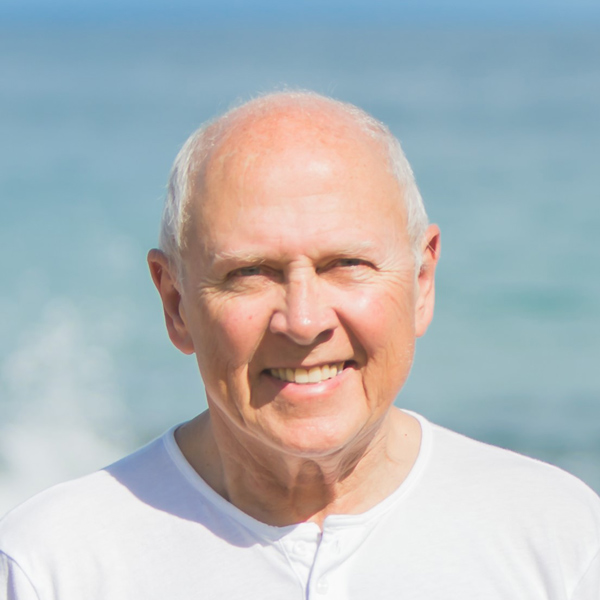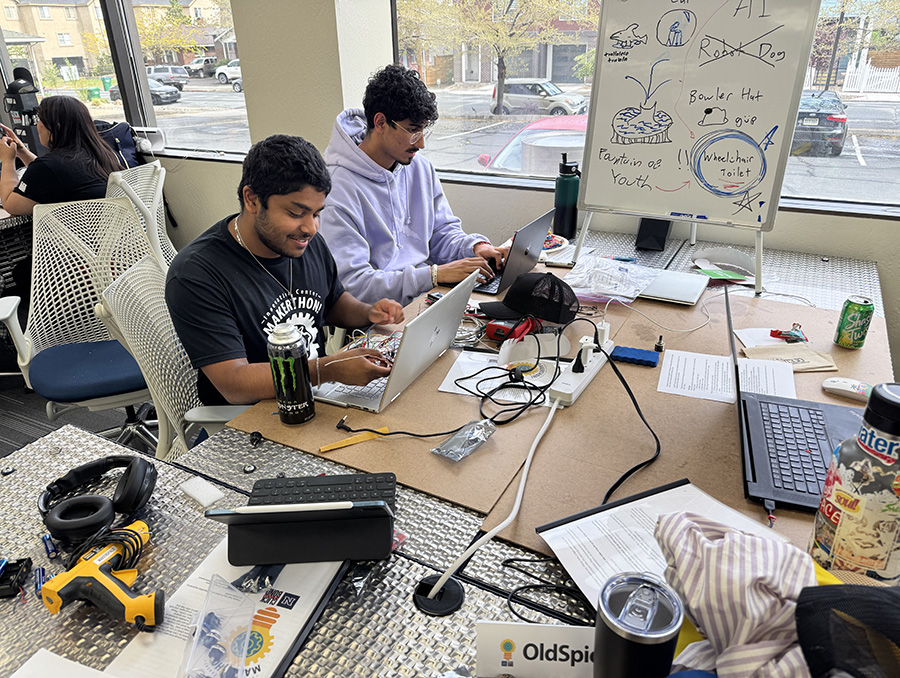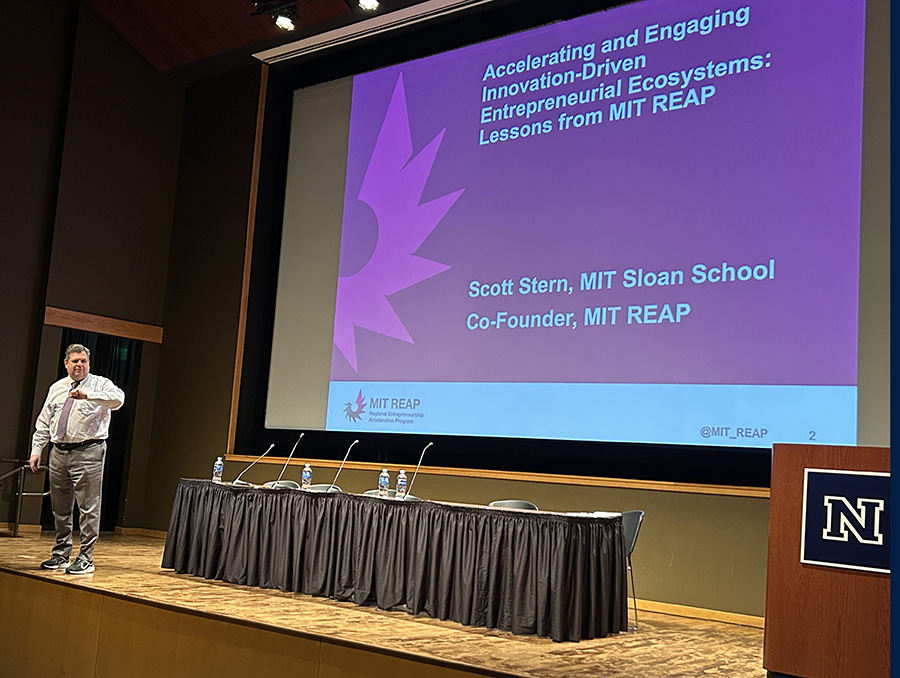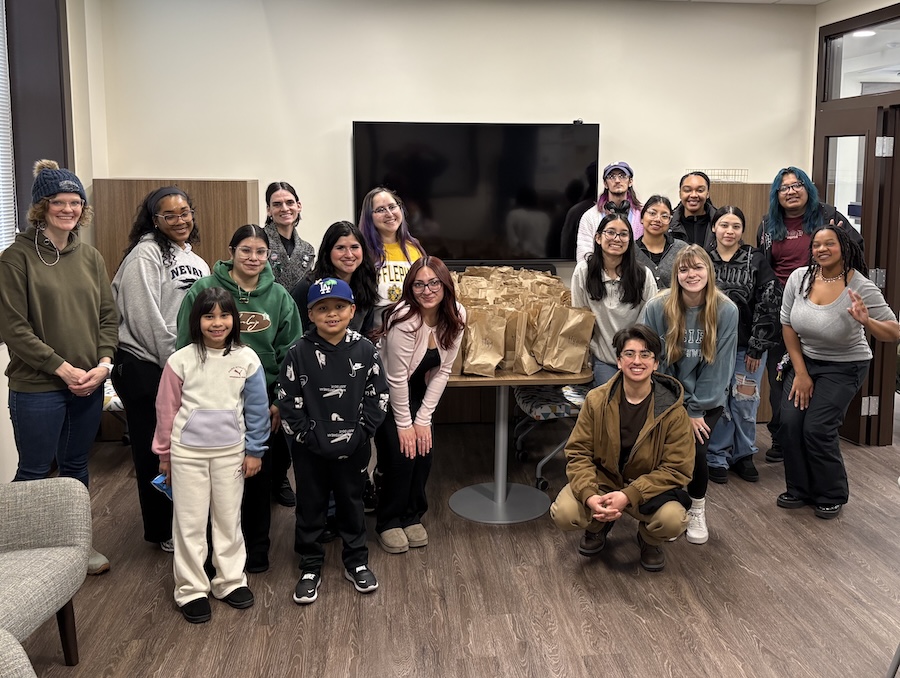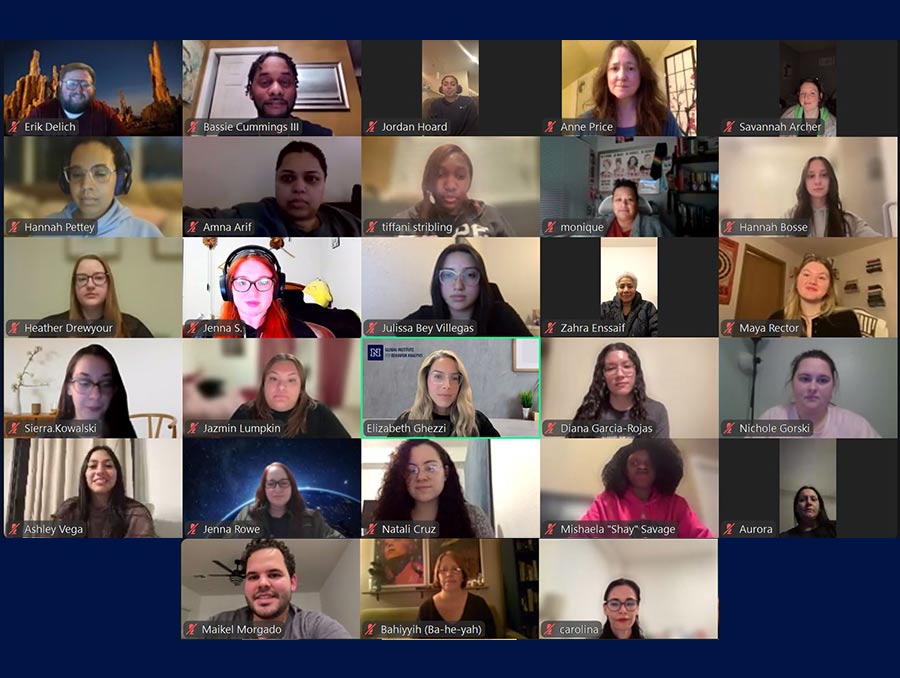The Optimism Series: Science will win the day!
Mick Hitchcock, Member of the College of Science Advisory Council and friend of the University, shares how his personal experiences with science give him optimism about the great problems we face.
In honor of Mental Health Awareness Month, the College of Science has asked researchers across a range of disciplines to share how they remain optimistic in the face of the many challenges of today, particularly within the field of science.
The many challenges today that face us daily can appear to be overwhelming and unsolvable. However, there are many historical examples of where science has been applied to the problem and we have beaten back the problems of the day. One large scale example was the invention of the Haber Bosch process for converting nitrogen in the air to ammonia in the early 1900s. The fertilizer produced enabled the agricultural industry to significantly expand production, and thus mass starvation of the rapidly expanding human population was avoided.
I have another example in my own history. In 1987, I was asked to join a team at Bristol-Myers that was working on antiviral drugs. The big challenge of the day was AIDS, and it was killing a lot of young people, sometimes within 6-12 months of diagnosis. The disease destroyed their immune system and made them susceptible to pathogens and cancers that the immune system normally keeps in check. By then it was recognized that the disease was caused by a retrovirus named human immunodeficiency virus (HIV). The infectious disease community had not had to deal with a retrovirus previously. But focusing on its unique property of reverse transcription, an inhibitor of its reverse transcriptase was found. It was called zidovudine or AZT, and was approved in 1987 by the FDA for treatment of AIDS.
However, even with that treatment, patients were dying in a year or two. But the Pharmaceutical Industry put resources into finding better treatments, and with collaborations with academia and the National Institutes of Health, they advanced the understanding of how the virus replicates and they engineered better drugs. After clinical testing, these additional drugs were approved for use. By 1996, researchers had figured out that the use of a highly potent protease inhibitor with 2 other drugs could keep the virus suppressed and the disease at bay. But these combinations often required many pills taken multiple times a day, leading to “pill fatigue.” In addition, longer-term toxicity was experienced after a year of two of therapy. By 2001, simpler regimens were available, but the ‘holy grail’ was to put the 3 drug-combination into a single pill that could be given once a day. This was achieved in 2006 with the FDA approval of Atripla developed by my team at Gilead Sciences in collaboration with a team at Bristol-Myers Squibb. Subsequently other single tablet regimens have been introduced, and HIV is now easily controlled by these new products. As an added benefit, when a patient takes the drugs and has ‘undetectable’ virus in the blood, they are also rendered non-infectious and do not pass the disease on to their sexual partners.
No one company had the whole answer, no one compound did the job. New avenues of research were explored, some being dead ends, and some opening new opportunities. And new partnerships between companies that were usually competitors were forged. It took about 30 years to make the advances needed, but when faced with such an intractable problem, human ingenuity comes to the fore and spurs us to find the answers.
So when I see the problems of the day, I see them as problems to which we have not found a solution yet. With the right focus and effort, we will get there. Science will win the day!
About the author
Mick Hitchcock, Ph.D. is supporter of the University of Nevada, Reno and creator of science and scientists. He spent his career of 40 years working in the pharmaceutical industry to discover and develop drugs and get them approved for commercial use. He currently participates in the creative process by being on the Board of Directors for several small companies and organizations.
Mick Hitchcock is also an advisory council member for the College of Science.

